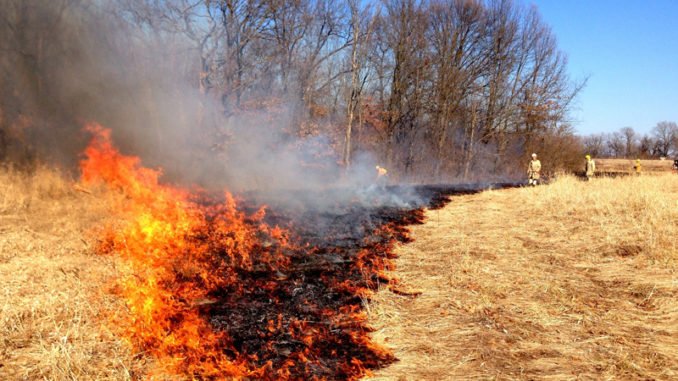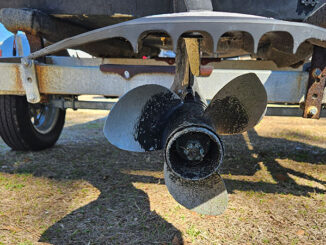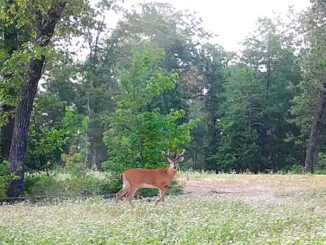
Burnings help restore and maintain wildlife habitat
Some people see smoke in the vicinity of N.C. Wildlife Resources Commission game lands and their immediate thoughts go to wildfires. What they’re witnessing is actually one of the most beneficial and cost-effective methods of managing habitat for wildlife – a prescribed burn.
The Commission uses prescribed burning, an intentional burning of vegetation, to help restore and maintain wildlife habitat on most of the 2 million acres of state game lands used by hunters, anglers and wildlife watchers throughout the state. Burning encourages production of native grasses and herbaceous vegetation, which provides valuable food and cover for a wide variety of wildlife species. Prescribed burns are also used to help reduce high levels of forest fuels (such as leaf litter and pine straw) that can lead to catastrophic wildfires and to control disease and insects.
The Commission’s burn season typically runs January through March. Some burns, however, are conducted into spring and summer, as warm season burning provides for better control of young hardwoods in certain habitats. Optimal conditions for a prescribed burn occur on cool-weather days with the absence of strong wind.
Some wildlife species depend on fire
Many of North Carolina’s declining or rare wildlife species, such as the red-cockaded woodpecker, are adapted to fire or found only in fire-dependent habitat. Commission staff typically conduct maintenance burns in multi-year cycles to open groundcover for quail, grassland birds, deer and turkeys.
“Some may worry that the animals will be unable to escape from the fires during our burning season,” said Chris Jordan, the Commission’s lands program coordinator. “The Commission utilizes burning techniques that ensure animals have time and room to escape. Vegetation typically returns within a few weeks, with the animals following shortly after.”
Follow the Commission’s Twitter page for daily information on prescribed burns being conducted across the state.
For more information on prescribed burns, view No Cause for Alarm and visit Prescribed Fire: What NC Citizens Need to Know. For more information on the Commission’s game lands program, including an interactive game land map, visit www.ncwildlife.org/gamelands.



